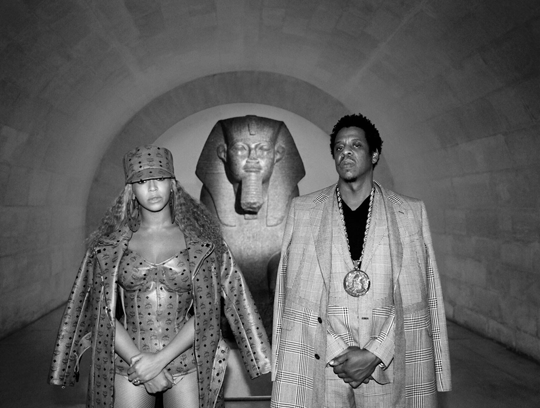Thank You, Misa Hylton: The woman who paved the way for today’s fashion.
Tierra Whack by Sam Orlin
Written by Isabella Bossé
Women in Hip Hop have notoriously been known to balance masculine with feminine. We’ve seen rappers such as Chika and Tierra Whack sport baggier clothing, while artists such as Megan Thee Stallion and Doja Cat have been seen wearing more form-fitting, feminine clothing. Trends we see in street style today have all birthed within the Hip Hop industry. Names such as Dapper Dan and Ty Hunter, are endlessly referenced for their contributions, as they should be.
Misa Hylton, the brilliant stylist behind some of Lil Kim’s most iconic looks and Beyoncé’s Apeshit bustier, is one to thank for the fashion we see today.
Born and raised in New York, Misa Hylton’s style was a reflection of her surroundings: her African American, Jamaican and Japanese roots and of course, the west coast streetwear style that birthed itself in New York. Hylton was only 17 years old
when she styled the R&B group, Jodeci with her boyfriend at the time, Sean Combs (yes, P. Diddy). Her vision for the group had been to style them in baggy streetwear like the popular rappers, instead of the dressed-up suit and ties that R&B singers had normally been styled in at the time. The success behind the hoodies, combat boots, and baseball jerseys led Hylton down the career path we know her from today. Over the years R&B artists have worn casual wear in music videos and during performances, this is thanks to Misa.
Before Misa came on to the fashion scene, female rappers normally sported men’s clothing to pursue a career and gain a voice in a male-dominated industry. Lil Kim’s style brought so much more to the industry. Lil’ Kim and Hylton brought more revealing, tight clothing onto the scene. In 1996, the music video for Lil’ Kim’s and Lil’ Cease’s Crush on You was released. The video, styled by Misa, immediately became well known for its monochromatic outfits.
Lil’ Kim, Crush on You music video
Misa Hylton
Hip Hop culture has been so defining because of the fashion that came from it. Chains, grills, and sneakers are some of the trends in which we can thank Black stylists for popularizing. Many of these trends which have been deemed as “ghetto” have never truly gone out of style, but instead are become more and more trendy.
Black women are often not taken seriously. Hylton’s career rose when there weren’t many Black women who were represented and respected. Although today BIPOC may not have it as simple as those who have more privilege in society, people like Misa have paved the way. Today’s generation is fortunate to be able to support and scope artists of colour through the media.
Misa rose up on her own, with nothing but an eye and a passion for style.
Want to learn more about how important Black artists who are responsible for the trends we are seeing today? Try watching The Remix on Netflix.










